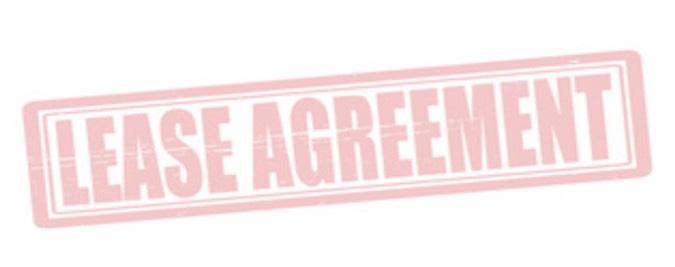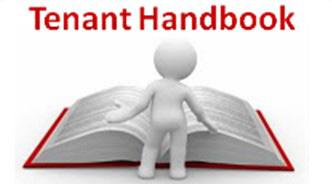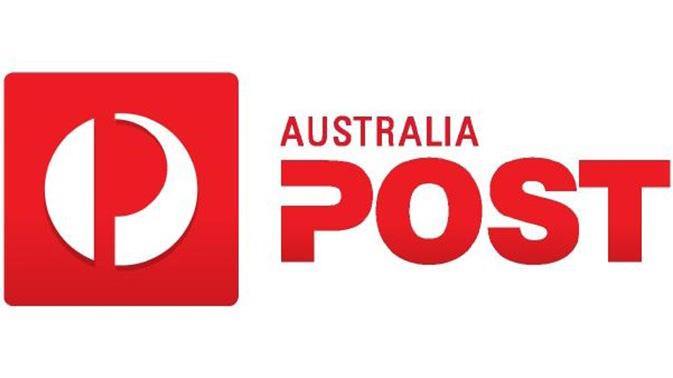My Rental Handbook



With nearly 20 years experience in property management, Marie has an extensive understanding of the rental industry and its legislation.
Attention to detail is important to Marie, and giving the best customer service to both our Landlords and Tenants is her priority. Add experience with and a love for bookkeeping, and this background allows her to easily explain figures and processes to our clients in a simplistic way that everyone understands.
When not at work, Marie and her husband are busy building their new dream home and enjoy being part of the Imbil community.
Contact Marie on 07 5488 6000 or send an email to Rentals@RJRproperty.com.au and let her help you.
• The Residential Tenancy Agreement, together with the Bond Lodgement form and the Entry Condition Report, sets out the details of your agreement with the Landlord. It details the fixed period and the weekly rental amount.
• At the end of the fixed term, you will be advised if your lease will be renewed, with your landlord’s consent.
• Rent reviews are carried out regularly and you will be advised of these in writing.
The lease contains a variety of standard & special terms and conditions. It is important for you to know how they will affect you. These conditions can include items such as:smoking, pets, property & grounds maintenance, swimming pools and sub leasing. Read them thoroughly so that you understand them completely!
RJR Property have a zero-tolerance policy for rent arrears. Therefore, we ask that you make proper provision for rent payments to avoid the work, embarrassment and resentment that comes from rent reminders and/or collection. Rent payments must be made on time – every time!
The Landlord will ensure his premises is insured, including floor coverings and window treatments. However, contents insurance is the Tenants’ responsibility.
The tenant has a responsibility to ensure the property is well maintained and kept clean and undamaged. Should the property require general repairs / maintenance, once reported by the tenant, this will be attended to by the Landlord. Note: Damage caused by the Tenant is not covered under repairs / maintenance.
There are numerous items to consider when maintaining a rental – these are split between inside and outside and we address these in further detail throughout the Handbook.
We also cover your responsibilities in relation to swimming pools, the importance of safety at the property, as well as the procedure to follow when vacating.
Congratulations, your application has been approved. Welcome to RJR Property.
You have been approved as we believe you will pay your rent on time, keep the house clean and undamaged, maintain the grounds and be a responsible tenant.

This is the legal agreement between you and the Landlord. This document identifies the names of the parties, the property details, the initial fixed period of the lease and the weekly rental amount. It also contains the standard and special conditions relating to the property, outlaid in further detail on the next page.
The bond (equal to 4 weeks rent), is lodged with the RTA (Residential Tenancies Authority) and held by them until the end of the tenancy. Handing the property back in the right condition and paying all rental monies due, will ensure your bond is returned in full.
This report, prepared by the Property Manager, and verified by you (the tenant), details the agreed state of the property at the commencement of the lease. The property must be returned in the same condition, given minor wear and tear.
When your fixed term period is nearing the end, you will be contacted by your property manager to discuss the renewal of the lease. Your Landlord must provide you with a minimum of 2 months’ notice to either renew or terminate the lease. These documents will be presented to you for signing at the appropriate time.
RJR Property, on behalf of your Landlord, will conduct regular rent reviews.
These reviews will take into consideration the current market with pricing and the tenant must be given a minimum 2 month written notice of the increase.

Your lease forms the legal agreement between you and the Landlord. The document highlights any special conditions relating to your tenancy.
Standard Terms -
These cover terms and conditions that relate to every property, including:
• period of tenancy and Entry Condition Report
• rental payments and rent increases
• rental bond
• outgoings payable by the landlord, including rates
• tenant expenses including water usage, gas and electricity
• rights and obligations pertaining to both the landlord & tenant regarding occupation and use
• restrictions on tenant subletting at the property
• vacating or ending a tenancy
Special Terms (Conditions) -
These terms relate to the use and care of the property and are outlined in further detail for items such as keys/remotes, insurances, smoke alarms, swimming pools and early termination etc.
Usually attached as an Annexure A –
The conditions included in Annexure A are specific to the leased property, and can include, but are not limited to:
• restrictions on smoking inside the house
• restrictions on unregistered vehicles and use of recreational vehicles & bikes
• maintenance on gutters / downpipes to assist water flow into water tanks
• maintenance around window treatments if marked or stained
• smoke alarms – maintaining a working condition and reporting faults
• drinking water – this is a user pays system for both rural tanks & town supply
• seeking permission for alterations, picture hooks or wall fixings
• keys are the tenant’s responsibility including when locked out or lost keys
• maintaining grounds and gardens including removal of waste, is a tenant cost
• ensuring fans, air conditioners and floorcoverings are cleaned regularly
• regular cleaning including cobwebs, windows/tracks, cooking appliances
• manage/report mould issues and advise of any noticed water leaks
• maintain acreage included in the tenancy and advise of any issues
• pets at the property – what is permitted and what the responsibilities are
• responsibilities surrounding swimming pools and or kids wading pools
• furniture items or furnishings included in the lease agreement
Read the terms & conditions thoroughly so that you understand them completely!
Applications are approved on the basis that the rent will be paid on time, every time. RJR Property has a zero-tolerance policy for late rent payments. Therefore, should you rent be late for any reason, it is important to let us know.
Follow up involves phone calls and persistent personal contact. This can cause upset or embarrassment and resentment. We do not apologise for such actions as we believe that the rent must be paid on time – all the time!
Most Landlords have mortgage obligations they need to meet, and therefore, we must ensure that their funds are paid to them on time and in full, every month.
Therefore, should you be late with your rent, please contact our office immediately to advise your Property Manager of the situation - advising why this has occurred and when this will be remedied.

It is crucial that you take out your own Contents Insurance!
Please note: Should your property be damaged or destroyed by circumstances affecting the Landlords property (Ie: fire, storm damage, power outages etc) your items and possessions are not covered by the Landlords insurance.
Example 1 – An electrical fault in the building starts a fire and the property is destroyed. Your possessions will not be covered by the Landlords insurance.
Example 2 – You are away on holiday and the power cuts out due to an electrical fault in the property. You return home to find your fridge / freezer goods spoilt. The food items will not be covered by the Landlords insurance.
Example 3 – A storm blows a tree onto the house and in the process your belongings or vehicle are damaged. Your possessions or vehicles will not be covered by the Landlords insurance.
In these cases, quality Tenant Contents Insurance should cover your goods. However, please have this discussion with your Insurer at the time of taking out your policy as all policies differ.
It is your responsibility to ensure you have adequate cover for your possessions against loss and damage as you are not able to hold your Landlord liable for damaged or destroyed Tenant belongings.
We insist that all repairs are requested in writing as soon as an issue occurs, and photographs provided where possible.
You can lodge a written request by any of the following methods:
• Complete the Maintenance Request on our website www.RJRproperty.com.au
• Email your Property Manager Rentals@RJRproperty.com.au
• Call our office and request a maintenance form (07) 5488 6000
• Visit our Imbil office and fill in a maintenance form

Emergency items are generally those that could cause injury to the tenant, damage to the property or are a safety or health risk. These may include –
• Water pipes that have broken or burst
• Blocked or broken toilet – only when the property has just one toilet
• Serious roof leak or gas leak
• Dangerous electrical fault – loose live wires or sparking power point etc.
• Serious storm, fire or impact damage – Eg: impacted by a motor vehicle
• Failure/breakdown of the gas, electricity or water supply to the property
• Hot water service failure – on a weekend or long weekend. Note: this is not an emergency if this occurs on a weeknight
• Fault or damage that makes the premises unsafe or unsecure (a smashed front window would be a good example)
• Fault likely to injure a person, cause damage or extreme inconvenience
In an emergency, please always try to call your Property Manager before arranging your own tradespeople. Should you instigate a tradesperson call out, and it is not deemed to be an emergency repair, your Landlord may request that the additional expense of the after-hours call out fee be paid by you.

Misplaced Keys -
If you have misplaced your keys during business hours, you may come to our office and borrow our master set to have keys cut. If you have locked yourself out after business hours, you will have to call a Locksmith at your expense. Any damage caused to the property while trying to gain access will be repaired at your expense.
Property Damage -
Damage to your rental property must be reported immediately. If damage occurs on the weekend or a public holiday, then please report the next business day.
Noise / Disruption -
Please remember that you are not to cause disruption to your neighbours with noise. Loud music and parties etc may disrupt their right to peace and quiet enjoyment within their residence. Please be conscious of this at all times.
Watering Systems -
Please ensure that all watering systems are working correctly and are checked regularly during your tenancy to ensure they continue to work effectively.
Weeding and Shrub Trimming -

Weeding of gardens, lawns, paths and paving are the responsibility of the Tenant. Minor trimming of bushes and shrubs is also the responsibility of the Tenant. However, serious pruning of trees or shrubs require prior consent from the Property Manager before commencing.
Lawn / Grass Maintenance -
It is the Tenant’s responsibility to regularly mow and edge all lawn/grass areas to keep them neat and tidy. Should you need assistance, please let us know.
Supplied Hoses / Fittings -
Supplied hoses, fittings & accessories must be maintained in a good condition.
Rubbish -
Household rubbish & waste must be moved to the garbage bins provided and larger junk / rubbish items should be removed from the property.
Oil Leaks -

Cars parked in driveways, carports & garages must have something placed underneath them if they are leaking oil. Should any leaks occur, they must be cleaned up immediately to prevent permanent staining. Removal of stains are at the tenant’s expense.
Pool and Spa Cleaning –
Pool and spa cleaning and maintenance is the Tenants responsibility, unless your lease states otherwise. Please note that without regular cleaning you may be responsible for high costs to return the pool to a safe swimmable state. It is also a Tenants responsibility to ensure that the pool or spa maintains the correct water level and must not be emptied without written consent from your Property Manager.
Supply of Pool Chemicals -
The cost of all pool chemicals is a Tenant expense.
Pool & spa covers, accessories, equipment and pool furniture -
It is the responsibility of the Tenant to keep all accessories and equipment in good condition. This also includes any outdoor pool furniture supplied by your Landlord. Pool cleaning equipment and covers must be kept out of the weather when not in use.
Pool and Spa Fences and Gates -
Please advise as soon as possible if fences and gates are not functioning correctly. If the gate fails to self-close, bring this to the attention of your Property Manager.
Pool safety – be aware!
Priority must always be the safety of you, your children, and your guests!
Be aware and report these things to your Property Manager:
• Exposed wiring and faulty power points and switches
• Substantial damage to paving or pathways that could cause someone to trip
• Suspicious or dangerous plants in the garden that are poisonous / toxic
• Bee or wasp nests where the insect is causing concern of allergy or stings
• Loose balcony railings, steps, or decking

Vacating the property:
We have an excellent book that covers all the things that you need to know when it is time to move out. When you are moving out, collect a copy from our office or download the book from the rental section of our website. This provides a checklist to make sure you don’t miss anything and generally runs you through the process.
Please ensure all services are connected prior to your lease commencing.



Have you remembered to have the power connected? Most rural properties rely on electric pumps to operate the water. Without power, taps, showers and toilets throughout the property will not work.
Mail delivery is not available in Kandanga, Imbil, Amamoor or Kenilworth Villages. Please organise a Post Office Box or arrange to have your mail collected from the Post Office. Check with your local Post Office to see if mail delivery is available to your address if you live outside these villages.
Please check the Gas Cylinders when you commence tenancy to ensure there is plenty of Gas.

All of the wastewater from your toilet, bath, kitchen and laundry flows into your septic tank which needs to maintain a good bacterial balance to keep working.
SEPTIC SYSTEM DON’TS
DO NOT PUT THESE ITEMS IN YOUR SYSTEM
YOUR TOILET
x Toilet bowl cleaners or harsh cleaning chemicals
(Chemical cleaning products ruin the bacteria in your septic system and stop it working)
x Disposable diapers
x Sanitary napkins, tampons or condoms
Do not flush anything except toilet paper into your septic system!
YOUR KITCHEN
x Fats or grease
x Motor oils or fuels
x Coffee grounds, egg shells, nut shells
x Filter tip cigarettes
x Paper towels or rags
x Paints or chemicals


x Drain cleaners, floor cleaners, paints solvents, waxes, polishes, coating or strippers may destroy important bacteria in the septic tank and contaminate ground and surface water.
R Do spread laundry use over the week rather than many loads on one day. While it might be convenient to do so, dedicating an entire day to doing laundry will put a severe strain on your septic system. Space out your laundry loads and wash only full loads. The average load of laundry uses 47 gallons of water. One load per day rather than 7 loads on Saturday makes a big difference to your septic tank. Also, front loading washers use less water than top loaders.
R Use liquid laundry detergent. Powdered laundry detergents use clay as a ‘carrier’. This clay can hasten the build-up of solids in the septic tank and potentially plug the disposal area.
R Minimize the amount of household cleaners (bleach, harsh cleansers) and similar toxic substances. Detergents, kitchen waste, laundry waste and household chemicals in normal amounts do not affect the proper operation of household sewage treatment systems.
R Run water regularly in seldom used drains such as sinks, tubs, showers, etc. to avoid noxious gases from building up and causing odours inside.
If you notice any of these warning signs contact your Rental Property Manager immediately for assistance.
• Water and sewage from toilets, drains, and sinks are backing up into the home.
• Bathtubs, showers, and sinks drain very slowly.
• Gurgling sounds in the plumbing system.
• Standing water or damp spots near the septic tank or drain field.